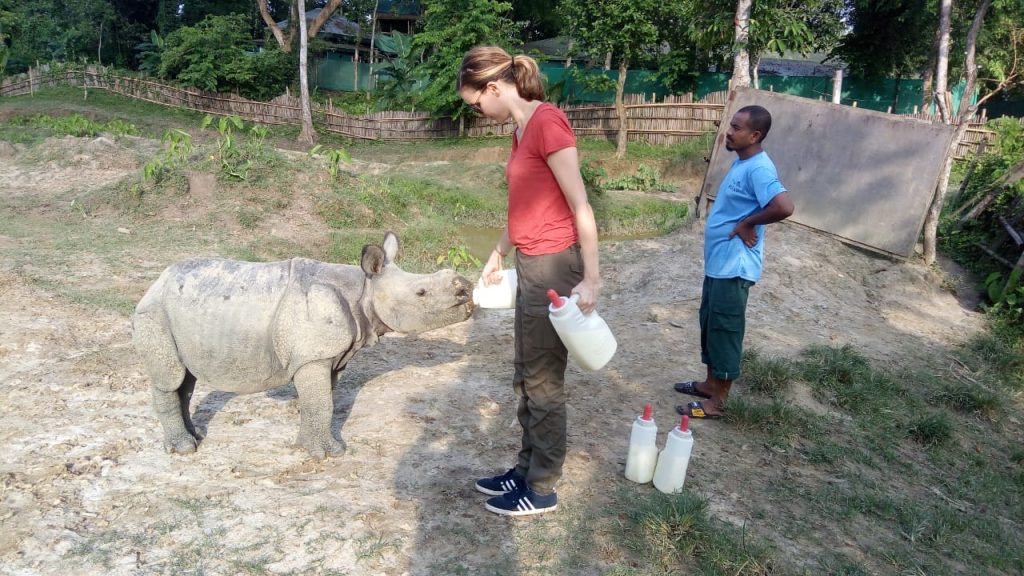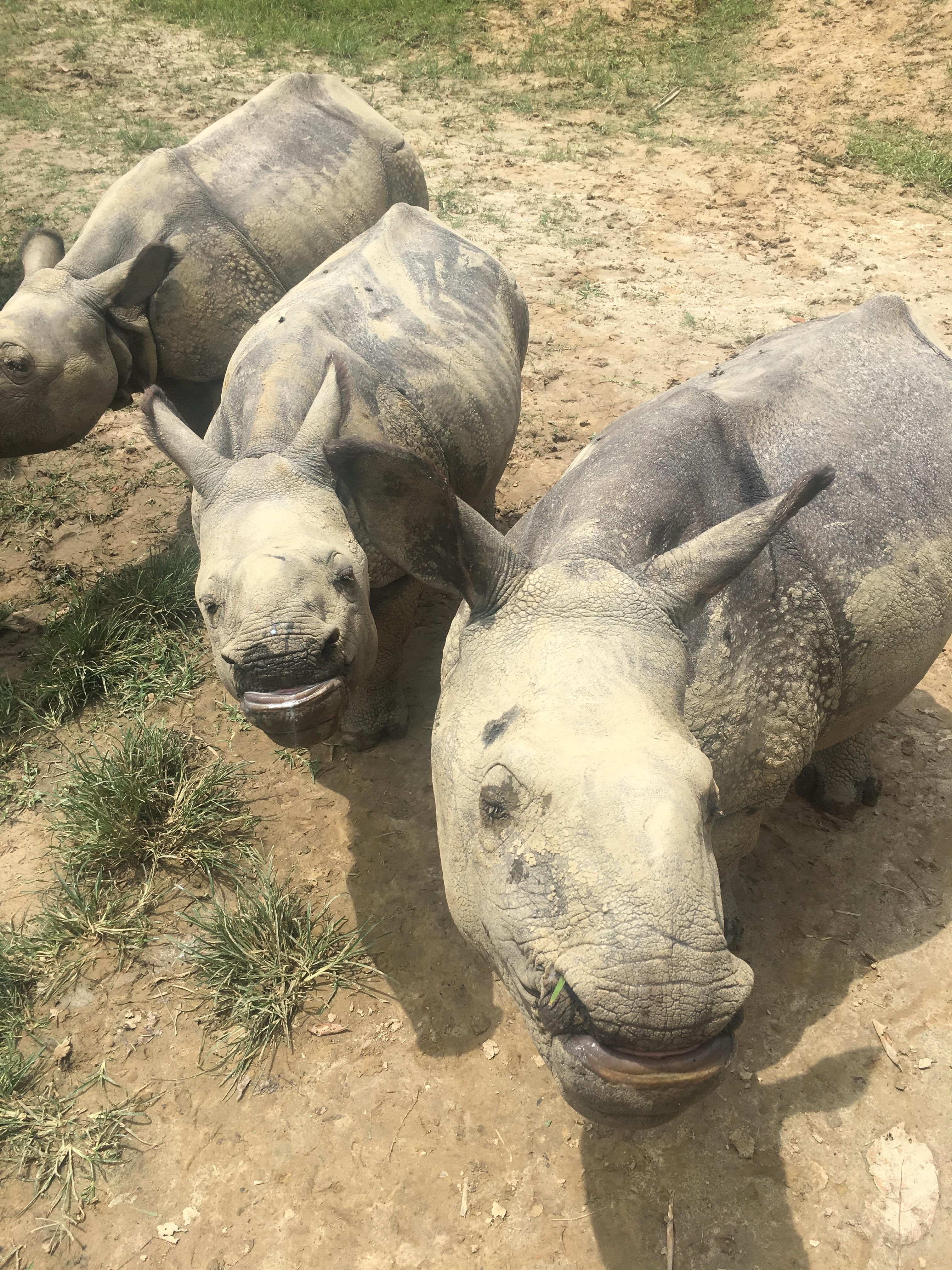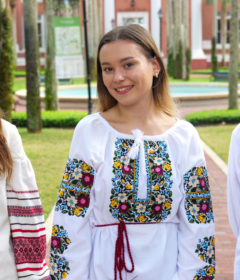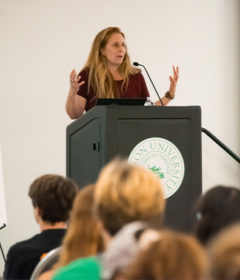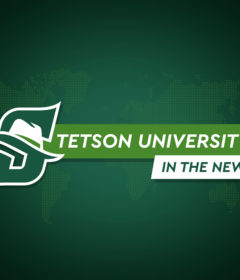Law Student Spends Summer Working with Wildlife Trust of India
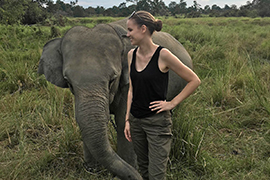
“Never once did I think coming to Stetson Law would allow me to bottle-feed rhino calves in a remote jungle in India,” said second-year law student Kate Welch, who spent her summer working with the Wildlife Trust of India in Delhi, India.

Welch met Vivek Menon, executive director and CEO of the Wildlife Trust of India, when he was on the Gulfport campus giving a Foreman Biodiversity Lecture at Stetson. The meeting opened the door to a summer job for Welch in India.
“When Mr. Menon invited me to apply for a job there this summer, I knew it would be a unique experience in the field of international conservation law that I could not get working at a law firm in Florida,” said Welch.
Stetson’s new Dick and Joan Jacobs’ Environmental Externship Fund helped fund the trip to work in India.
“Without the support of Stetson staff, faculty, alumni and the Dick and Joan Jacobs’ Environmental Externship Fund, I would never have been able to experience the wonders of India and gain the insight I have into international environmental law and conservation policy that I hope to use in my career in a similar field,” said Welch.
Welch reflected on her impressions of life in India. “It is a tough place for the 1.32 billion Indian people to make a living, let alone the precious wildlife,” said Welch, who added that despite the poverty and pollution, the people of India are resilient.
“I have heard many stories of starving wild elephants ransacking forest villages and killing people, only for their family members to quickly forgive the beasts and better educate themselves on how to build their community in a way to better avoid future human-elephant conflict,” said Welch.
For a week in July, Welch was able to take a trip to the Centre for Wildlife Rehabilitation and Conservation in the northeast Indian state of Assam. The ultimate goal of the Centre is to rehabilitate animals that have been orphaned or injured in Assam and return them to the wild. Welch said that the lawyers at WTI have helped to raise public awareness about important wildlife conservation issues in India.
“That in turn motivates donors to contribute funds to the work done in the field and encourages the public to lobby policymakers for a change,” said Welch.
This summer, Welch completed legal research pertaining to different issues park rangers are having in parks across the country and what implications the federal laws have on them. She also worked WTI’s booth at the United Nation’s World Environment Day. Welch has spent a majority of her time helping to organize an event called Gaj Majotsav.
“Thousands of people will be coming to the WTI event,” said Welch. “The top ministers of two Indian ministries will be there, Bollywood celebrities, top policymakers, film makers, conservationists, and hundreds of schoolchildren and others will be coming together to learn more about the importance of protecting the Asian elephant in India and preserving its ecosystem for the future.”
Welch had the opportunity to travel with Dr. Panjit and another WTI veterinarian into Kaziranga National Park to treat a badly injured elephant.
“The injured elephant was attacked by a wild bull elephant,” Welch explained. “The injuries were horrific but the veterinarians had been going to see and treat him every day for the first month and every other day after.”
Welch was able to help dress the wounds on the tail.
She explained that the job invigorated her to return to Stetson and throw herself wholeheartedly into supporting the causes that are important to her.
“This means not just working hard in the classroom but volunteering my time and energy to make a difference off campus as well,” said Welch. “This experience has taught me that no matter how hard things get or how dim the future looks for environmental activism in the United States, the work we do as lawyers matters and it is important to keep on fighting the good fight, because every little bit matters.”
-By Julie McHaffie

